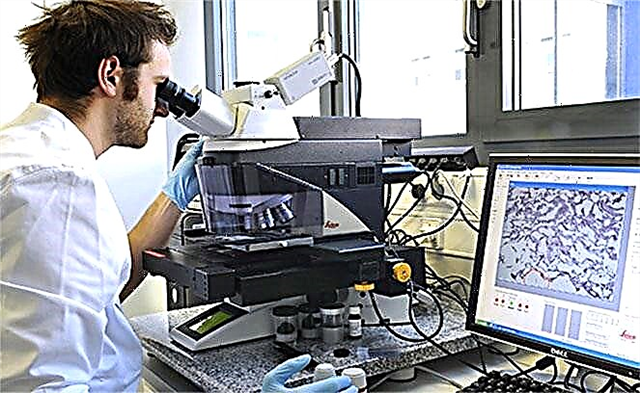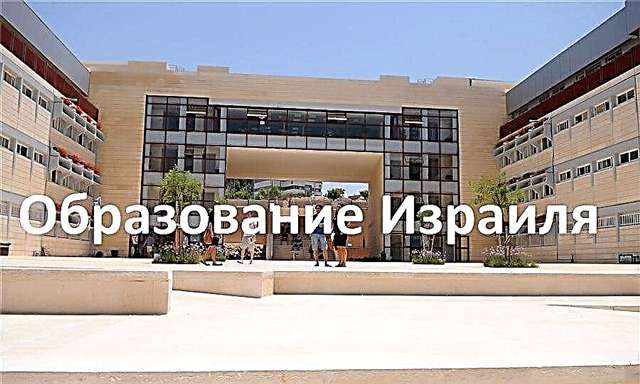The German state is a veritable storehouse of scientific ideas and talented scientists. Both the local authorities willingly finance, which contributes to the stability of the economy and stay in leading positions in the world rankings of technological progress and scientific thought in general. This is why postgraduate studies in Germany are of great interest to international students and also a welcome career extension for local talents.
The system of higher education in Germany
The highest level of the educational process in Germany is based on the Bologna Process. The system includes two stages: bachelor's and master's degrees.
Some directions, however, do not obey such a clear division. For example, jurisprudence. In law schools, the entire course of study ends with state exams.
Master's degree candidates have at their disposal 2 types of study programs - sequential and inconsistent. The first is tied to the bachelor's diploma, which they have already received, the second has nothing to do with it. It is not possible to get an education in an unrelated specialty in all universities.
Admission for foreign students is notable in that the German high school consists of 13 classes. For this reason, 11th grade graduates in their native schools will have to study at a German college for another 2 years in order to fill this gap, or to unlearn 2 years at a domestic university and apply for admission to the 1st year of the university.
Admission to the ranks of students is carried out without exams. For Germans - on the basis of an Abitur (high school graduation diploma), for foreigners - if there is an admissible number of passing points and a certificate of proficiency in German of at least B1 level. At the same time, it is necessary to confirm the level of language proficiency regardless of which of them will be taught - in English or German.
Studying at the German Hochschule, when it comes to public universities, is free. Only semester fees are paid, in some cases insurance and a travel card.
In private universities, tuition is paid. Many educational institutions provide their pupils with housing in equipped and comfortable campuses, where there is an opportunity to find a part-time job while studying.
The article "Higher education in Germany" will help you to understand the curriculum and principles of building the educational process.
What are the forms of postgraduate studies
The first thing that applicants for postgraduate study in Germany need to know is in what format the training takes place. It will depend on several factors:
- directions and specialties;
- research project;
- type of educational institution.
Most often, there are two forms of the educational process - individual and structured programs for graduate students. The first of them still prevails in the German education system, but the second is gaining more and more popularity every year.
Defending a dissertation means receiving a PhD degree - Doctor of Philosophy, which, however, has nothing to do with the works of great thinkers, but indicates science in general.
Individual training
The individual format of the educational process assumes that the candidate must find a professor who will play the role of a scientific advisor and guide the actions of the graduate student at all stages of writing a scientific work. At the same time, the work on the study itself will be carried out on an independent basis.
The training will last about 3-5 years. This will be determined by the individual plan of the graduate student or the period for which he will be allocated a place in the educational institution. At the same time, the young researcher is given the right to choose on the basis of which particular educational institution he will build his work:
- in the University;
- within the walls of a non-university research center;
- at a manufacturing plant.

This approach provides the graduate student with a certain mobility and flexibility in building a work process. But at the same time, it requires high personal concentration and initiative from him.
Structured programs
You can defend your PhD in the German state using one of the programs that have a clear structure and are subject to a specific action plan. This format closely resembles the Anglo-Saxon model doctoral defense system.
It is assumed that all research activities of the graduate student will be supervised by a whole group of mentors, following a clearly scheduled curriculum. Most often, programs of this order are formed at the junction of several disciplines, which allows future doctors of science to obtain additional qualifications and knowledge in the course of their studies.
A distinctive feature of this form of training is the structure and intensity of the entire process, which is ensured by teamwork. This significantly reduces the number of years that will have to be spent in graduate school - to 3-4.
It is quite difficult for foreigners to become a participant in such a program. But if this happens, it will be much easier for you to write a scientific project.
During the first academic year, the graduate student expects a large number of lectures and conferences, new contacts that will allow him to successfully approach the end of all activities - the defense of research. Thus, the future candidate is immersed in a kind of scientific incubator, where nothing distracts him from the dissertation.
What are the conditions for admission and training
Do not forget that Germans take education quite seriously, gladly accepting gifted individuals under their care. If you have to work with one professor, you should remember that the learned minds in this country are held in high esteem. Their opinion is listened to, and their status is respected. Therefore, it will depend on the decision of your potential leader whether you will be admitted to graduate school or not.
For this to happen, it is not necessary to have already published articles, you may not even have a clear idea of the topic on which you will write your dissertation. It can be picked up in the first year of study. But at the same time, having a collection of your works can play an important role in the selection.
A prerequisite for admission is the submission of a letter of motivation. In it, you need to designate the scope of your interests and already existing knowledge.
If you decide to tempt fate on your own, without any recommendations, then the prestige of the university that you have already graduated will be of great importance. If someone does favor you, it is very important that this is a person known in certain circles.
Analyzing your application, the professor will try to assess what benefit you can bring to the educational institution, the subject of research and science in general. For this reason, it is important to convince an eminent person that you not only want to get a doctorate, but that you can become a valuable research fellow.
But analytical skills, the ability to process large amounts of information and perseverance will become an important component of your success in the course of your studies.
Algorithm of actions upon admission
The entire process of completing postgraduate studies can be divided into several stages:
- Search for a scientific mentor.
- Submitting an application for writing a work.
- Adoption by a special commission of a decision on admission to writing a dissertation.
- Directly work on scientific work.
- Protection.
- Obtaining an academic title.
Admission can be called both a simple process and a complex one.On the one hand, foreign students are highly valued by German universities, as they tend to be more ambitious and hardworking. On the other hand, you need to work hard to convince the commission that your candidacy is of particular interest.
First you need to decide in which part of Germany you want to live and with which university to cooperate. After that, start looking for a professor. Take a close look at what topics he is working on, which projects are already closed, and which ones he is still working on.
Once you find the right mentor, contact them by email. Explain why you are concerned about why you want to work on your dissertation under his supervision, tell us about your achievements. If there are any plans for future research, outline them.
If the professor's decision is positive, he will invite you for an interview. It can take place either by phone or Skype, or in person. During the conversation, the professor will probably go over all the points of your motivation letter again. But be prepared for the questions that will arise during the conversation.
If the outcome is positive, proceed to the following steps:
- search for a place of residence in the country;
- opening a bank account;
- registration at the university at which the training will take place;
- registration of admission to writing a scientific work.
Package of documents
To apply, you need to prepare:
- Autobiography.
- Statement.
- Letter of motivation.
- Recommendations.
- German language proficiency certificate.
- The consent of the professor to become your supervisor and an indication of which department you plan to defend yourself in.
- A copy of your passport.
- Photo.
- Diploma confirming graduation from high school.
- Science articles.
If the commission gives a positive answer, then you can start applying for a national visa. For her, you will need confirmation that you have indeed been granted a place in a German university for postgraduate studies.
How to issue a permit to enter the country, and what package of papers you need to prepare for this, read the article "Visa to Germany".
Financial questions
Funding your training is an important part of the whole process. It is impossible to exclude the possibility of passing this path for free. But for this you will have to find a fund that will be ready to provide you with a scholarship, if the university itself is not able to do this. Most often, financial support is provided by special international programs for foreign graduate students or individual grants for talented scientists.
If you plan to provide your trip precisely at the expense of international funds, the article "Scholarships and grants in Germany" will come in handy.
Otherwise, you will have to pay for your tuition yourself. Already in Germany, you can get a place at the department, which will allow you to cover at least housing costs. But you should not rely heavily on the fact that the job will be provided to you. Moreover, when opening a visa, you will need to show that you have the funds to travel to Germany.
The amount should include the following items of expenditure:
- housing,
- medical insurance,
- nutrition.
Additionally, plan your transportation budget and running expenses. In a word, before you go to the consulate, you must clearly understand from which source your studies will be paid.
Difference between German and Russian postgraduate studies
It is important to remember that the German education system is somewhat different from the Russian one. Postgraduate studies are no exception. Pay attention to the following points:
- In Germany, admission is carried out on the basis of a letter of motivation and other documents submitted by the candidate. There are no exams to take.
- For admission, you will need to prove that the diploma received in the country meets the German requirements.
- Studying in Germany is free of charge, and in order to cover running costs, a graduate student can receive a scholarship from an interested foundation or win a grant.
- In Germany, in contrast to the Russian Federation, there is no requirement that a graduate student must have a certain number of articles (usually for humanities students, at the faculties of natural sciences they will still have to publish in journals). There is no curriculum either.
- The degree is awarded by the university, not by the Higher Attestation Commission, as in Russia.
- In German universities there are no requirements for the volume of scientific work. It is only its novelty and quality that matters.
In the Russian Federation, the German PhD is recognized. But this procedure is so bureaucratic that it is easier to translate your dissertation into Russian and defend it again.
German universities
German university degrees are highly regarded all over the world. As in any other country, they are divided into private and public. Secondary education is carried out free of charge, but private universities can still charge some fee, and sometimes quite a lot.
The reason for such great popularity is the historical background. After all, it was German scientists who for many centuries set the direction of the development of scientific thought. And the universities themselves, which today accept students from all over the world, are famous for their centuries-old history, classical teaching system and a wide variety of academic subjects.
The leading universities today are:
- Berlin Academy of Arts,
- Berlin Technical University,
- Rhine-Wetsphalian University in Aachen,
- University of Mannheim,
- Technical University in Munich,
- university in Cologne.
Conclusions
You can get a PhD in Germany today using a scholarship or grant from one of the many international foundations. The training format assumes two options - an individual plan and a structured program. 90% of foreign graduate students choose the first path. To be able to work on a scientific research, it is necessary to find a supervisor, obtain his consent to mentorship and issue admission to the defense at the university.
Passage of exams is not provided, and enrollment is carried out on the basis of academic success and high motivation. A significant success factor will be the recommendation of a well-known scientist or your own articles in well-known scientific collections.











